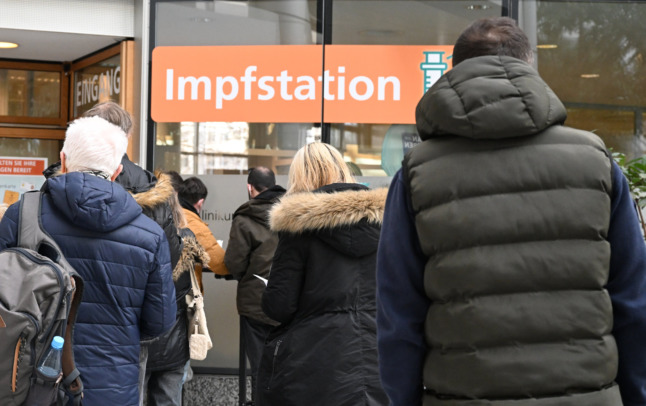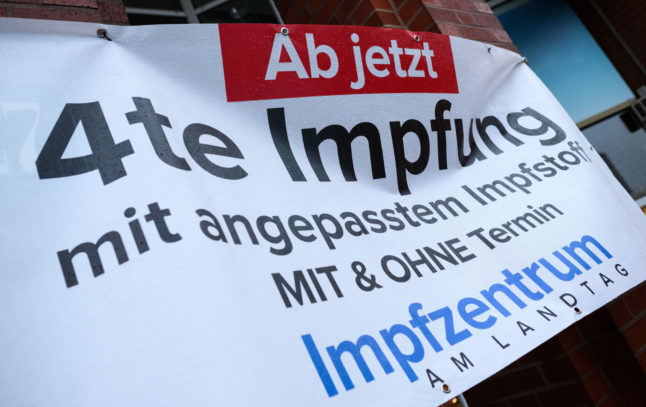German MPs were originally set to vote on the introduction of a compulsory vaccination by the end of March.
However, the vote will now take place at the start of April – despite the political challenges of the Russian invasion of Ukraine.
The politicians leading the two group motions for compulsory vaccination – the SPD’s Dirk Wiese and the FDP’s Andrew Ullmann – said they did not expect any further delays in the parliamentary process.
“The first reading of the group motions is scheduled for Thursday, March 17th,” Wiese told the Augsburger Allgemeine newspaper.
As the government is not presenting its own bill to the Bundestag, various cross-party bills are being prepared.
The bill led by the SPD’s Wiese proposes a vaccine mandate for all adults in Germany. Another (by the FDP’s Ullmann) proposes a mandate for everyone aged 50 and over.
Meanwhile, Bundestag vice president Wolfgang Kubicki (FDP) is gathering support for legislation against compulsory jabs.
The proposals have been hit by several delays. The first reading of a government bill was originally supposed to take place in January, but was then pushed back to early February.
Due to mandatory vaccines being a sensitive issue, Chancellor Olaf Scholz has pledged a free vote among members of the Bundestag on any bill, which means they won’t have to stick to a party line.
Wiese and Ullmann have urged the opposition conservatives (CDU/CSU) to allow their members to vote freely with their conscience.
“Compulsory vaccination is not a party-political issue,” said Ullmann.
READ ALSO: ‘Doubtful’: German government rows over general vaccine mandate
According to Wiese, the number of supporters for the motion to make vaccination compulsory from the age of 18 has continued to rise in recent weeks.
“The number of signatories now is 233,” he said.
“The issue remains extremely important,” the SPD politician stressed, adding that the law is about preparing for autumn when experts believe there could be another Covid wave.
So far, about 75.6 percent of the German population has had two Covid-19 jabs, and around 57.4 percent have received their booster shot.
From March 15th Covid vaccinations will become mandatory for health and care workers in Germany.
Meanwhile, the nationwide 7-day incidence of Covid infections has risen again for the fifth consecutive day.
On Monday there were 1,259.2 confirmed Covid infections per 100,000 people within seven days. Germany’s health offices reported 78,428 infections and 24 deaths within the latest 24 hour period. Figures are usually lower after the weekend due to reporting delays.
READ ALSO: What would a general vaccine mandate mean for the German job market?
Vocabulary
Vote – (die) Abstimmung
General vaccine mandate – (die) allgemeine Impfpflicht
Party political issue/question – (die) parteipolitische Frage




 Please whitelist us to continue reading.
Please whitelist us to continue reading.
I sure hope one day the government will be around to make all peoples choices for them. Forced informed consent.
All for no choices and censorship.
Guess I am going to have a problem if Mandated.
The idiots are still in love with so called ‘number of cases’ (including all the false definitions).